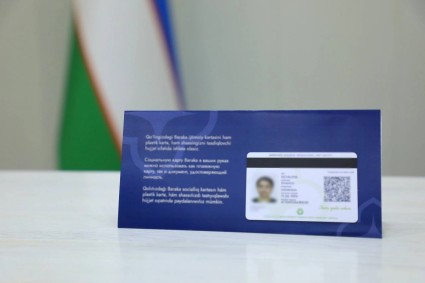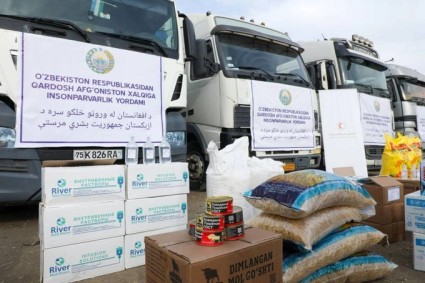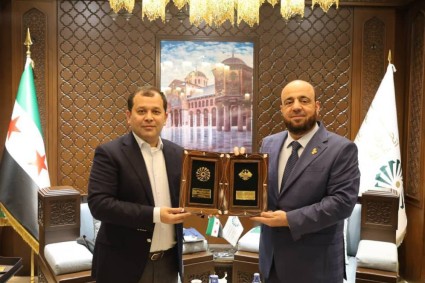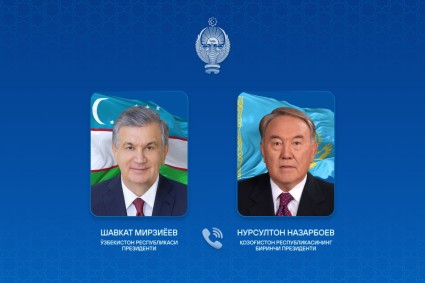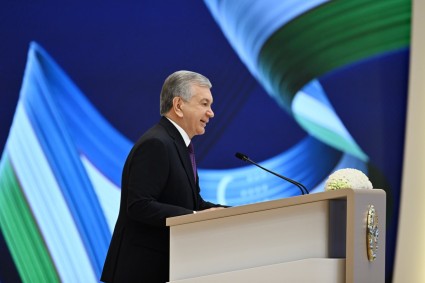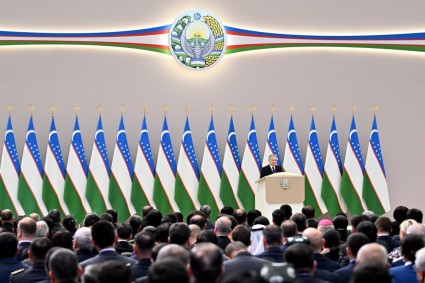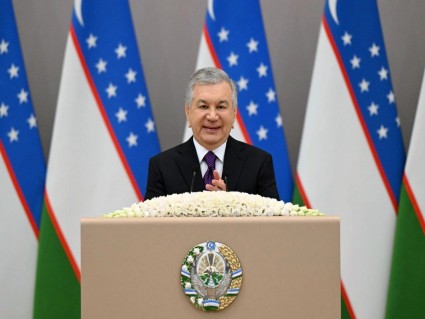The European Economy Days in Tashkent featured a panel session on the Trans-Caspian Transport Corridor (Middle Corridor) under the auspices of the Organization for Economic Cooperation and Development (OECD), dedicated to logistics and regional cooperation, with the participation of trade experts and government officials.
According to Henrik Hololei, the Senior Adviser to the Director-General for International Cooperation at the European Commission, the Trans-Caspian Transport Corridor is an important factor for development for double-landlocked Uzbekistan.
“Thanks to this transport network, we can connect the region with Europe. Smooth and well-managed management of such corridors will facilitate development. In addition to Uzbekistan, Turkmenistan can also become a very important country in this network,” Henrik Hololei noted. “This will allow us to improve customs relations between the countries and create reliable and functional border crossing systems.”
Gregory Leconte, Senior Policy Analyst and Head of the Central Asia Division of the OECD Eurasia Department, spoke about the OECD’s plans for 2025.
“We will examine what has already been done, what is being done today, what progress has been made and what challenges currently exist in the field of freight transportation. We are currently conducting a survey among private sector officials in five countries of the region, in which about 50 companies are participating. We are looking at how the government of each Central Asian country supports the private sector. The goal of this study is to provide focused recommendations for countries in the region by immersing ourselves in the priorities of each state,” he noted.
“We are particularly interested in Uzbekistan because it is a Central Asian country that is less integrated into the global value chain, but during [the European Economic Days] we agreed with the statement that Uzbekistan is a leading reformer in the region, and it is also on track to join the WTO,” the OECD executive said.
Gregory Leconte also noted: “We need to perceive the Trans-Caspian Corridor as a pearl that allows us not to create separate additional routes. We see that this corridor has great potential. Especially if it becomes an opportunity for economic integration of the region with a greater emphasis on easing and streamlining customs processes."
He voiced concerns that trade in the region is growing very quickly, and the infrastructure may not be able to keep up with it. He added that it is also necessary to focus on digitalization.
"If you digitalize your processes, you make them less complex. Therefore, reforming the system of trade processes depends primarily on such initiatives," Gregory Leconte emphasized.
Among the shortcomings, the OECD official highlighted the low degree of coordination at the regional level, especially in the use of software and data exchange.
Davron Dekhkanov, Head of the Transport Corridors Department of the Ministry of Investment, Industry and Trade, said that over the past 5 years, trade turnover between Uzbekistan and the EU countries has almost doubled and by the end of 2023 amounted to about 6 billion tons.
"Uzbekistan has seen a steady increase in the volume of international cargo transportation. The annual increase is over 10%. According to the results of 2023, the growth of transit traffic amounted to 12%. The main flow of transported export cargo from Uzbekistan in the direction of the EU countries is carried out along the Trans-Caspian transport corridor - the southern route through Turkmenistan and the middle route through Kazakhstan," said Davron Dekhkanov.
He noted that the Central Asian states are working to improve infrastructure, build hubs and free trade zones.
Davron Dekhkanov emphasized that this year the 200-kilometer Kungrad-Beineu highway was reconstructed and put into operation - part of the logistics network connecting Uzbekistan with European markets through the ports of the Caspian and Black Seas. The possibility of implementing a project to build the Uchkuduk-Kyzylorda railway and highway is currently being studied, which will shorten the route to Kazakhstan. The specialist also mentioned the construction of toll highways from Tashkent to Samarkand and Andijan.
An executive of the Grand Eurasia Group company spoke about problems with corruption in the field of cargo transportation.
"We are engaged in logistics, including in the direction of Europe from Uzbekistan. For the last three years, we have been developing transportation via Afghanistan and ports in Pakistan. There are problems on the roads in our work. For example, when we are in Kazakhstan and deliver cargo to Uzbekistan, the workers on the ground are not interested in the availability of documents and the procedure for passing customs. The queue for those waiting can only be moved artificially. If you pay money, then you will pass the border faster. Otherwise, you can stand there for at least a week," the company official said.
He added: "These are their rules, which they themselves came up with on the spot. No interstate agreements will help in solving this problem. We need a mechanism to exclude the influence of the human factor."
Officials of the Uzbek government responded that meetings with the Ministry of Transport of Kazakhstan are often held on these issues. According to them, at the last meeting with the participation of customs authorities of Kazakhstan, issues of queues at the Kazakh-Uzbek borders were discussed.
Government officials confirmed that cases of wrongdoing at customs do occur. According to them, Kazakhstan has already introduced an electronic queue system, while Uzbekistan is still on the way to implementing such a system. It is planned to improve the exchange of information between the two countries, which will change the situation with cargo queues at the border for the better.
The Days of the European Economy were held in Tashkent on November 6-7, organized by the Europe-Uzbekistan Economic Cooperation Association (EUROUZ).

